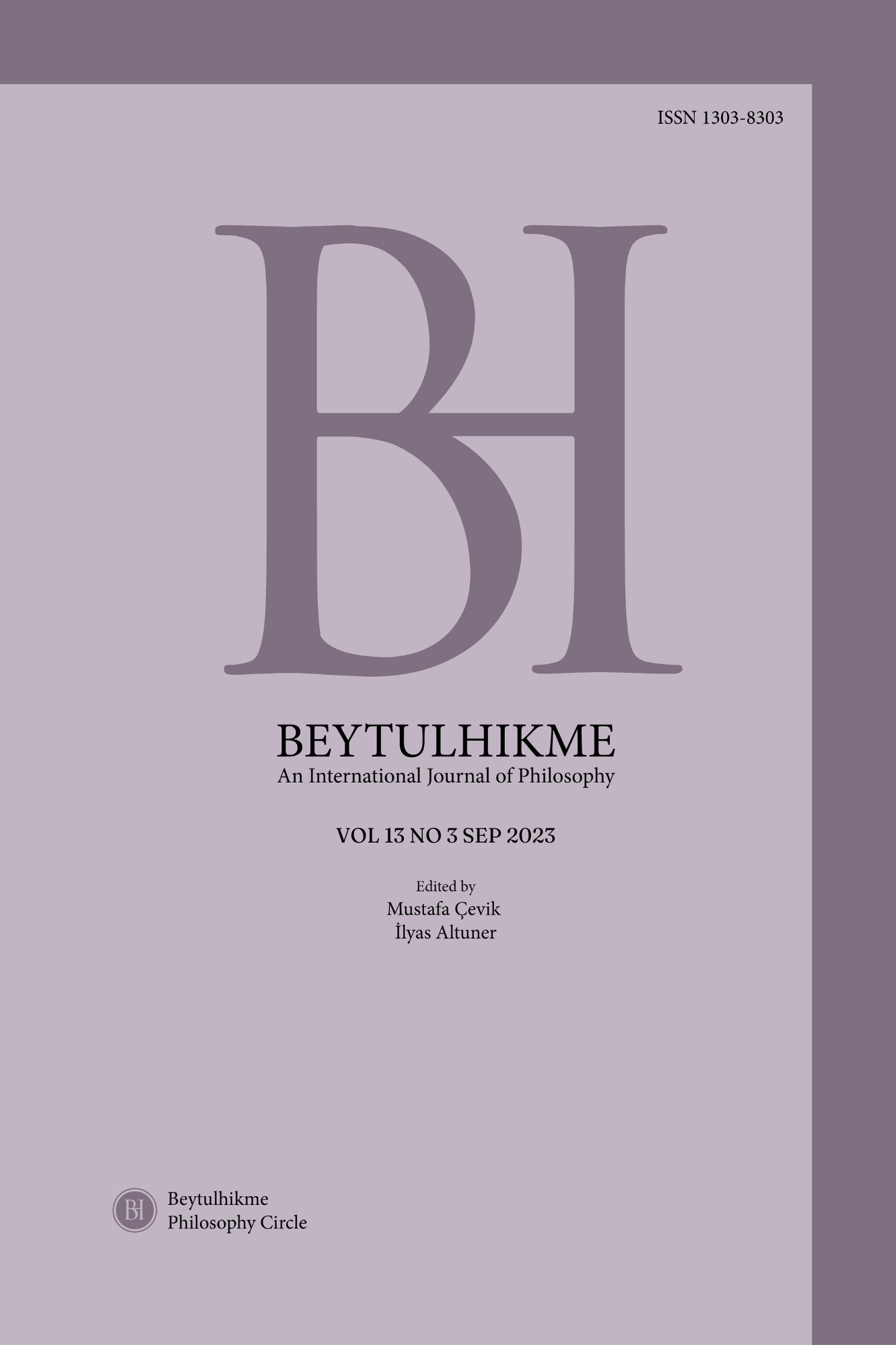Türk Modernleşmesinin Felsefe ile Temasını Ziya Gökalp Üzerinden Düşünmek: Felsefenin Saadeti mi; Saadetin Felsefesi mi?
Author :
Abstract
Çağdaşlaşma veya batılılaşma şeklinde de tavsif edilen modernleşme sürecinin sadece pratik sonuçlarıyla yetinmeyen, bunun ötesinde söz konusu sürecin kök nedenleriyle ilgilenen teorik bir çabanın çağdaş Türk düşüncesi açısından önemi ve değeri açık olsa gerektir. Her halükarda meselenin teorik veçhesine yoğunlaşacak bir düşünce çabasında Türk düşüncesinde felsefi düşüncenin ihraz ettiği mevki esaslı bir tartışma konusu olacaktır. Türk modernleşmesinin felsefe ile temasını ele almak, Çağdaş Türk Düşüncesinin kapsamlı bir tasvirine ve gelişim imkanına da önemli katkılar sunacaktır. Meşrutiyetten Cumhuriyete geçiş evresinde yaşamış olan Ziya Gökalp, modern sosyolojiye ve felsefeye duyduğu ilgiyle Türk düşüncesine dair kuşatıcı ve özgün bir perspektif sunan ender düşünürler arasında yer almaktadır. Türk düşüncesinde felsefi düşünce alanına ilişkin özgün bir perspektif geliştiren Gökalp’in klasik pozitivist tutumdan farklı olarak felsefi düşünceyi kültürle ve insanın ideal dünyasıyla ilişkili bir düşünce etkinliği olarak tasarladığı görülmektedir. Gökalp’in felsefeyi kendisiyle refaha ve zenginliğe ulaşılan özel bir düşünme biçimi olarak tayin etmekten ziyade, felsefeyi maddi refahın sonrasında ortaya çıkan özel bir düşünce etkinliği olarak ele aldığı görülmektedir. Mevcut çalışma, Gökalp'in modernleşme tecrübesi içerisinde felsefeye nasıl bir konum biçtiğini tartışmaktadır.
Keywords
Abstract
The importance and value of a theoretical effort dealing with the root causes of the modernization process, which is also described as modernization or westernization, for contemporary Turkish thought must be obvious. In any case, in an effort to concentrate on the theoretical aspect of the issue, the position of philosophical thought in Turkish thought will be a matter of debate. Addressing the theme of Turkish modernization with philosophy will also contribute to a comprehensive description of Contemporary Turkish Thought and its development opportunity. Ziya Gökalp, who lived in the transition phase from the Constitutional Monarchy to the Republic, is among the rare thinkers who offer an encompassing and original perspective on Turkish thought with his interest in modern sociology and philosophy. It is seen that Gökalp, who developed a unique perspective on the field of philosophical thought in Turkish thought, designed philosophical thought as a thought activity related to culture and the ideal world of man, unlike the classical positivist attitude. It is seen that Gökalp considers philosophy as a special thought activity that emerges after material welfare, rather than designating philosophy as a special way of thinking through which prosperity and wealth are achieved. The present study discusses how Gökalp assigned a position to philosophy in Turkish modernization experience.





